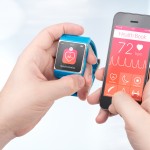 There has been a whole lot written about the prospects of digital natives changing the nature of work, but could the same be about to happen with healthcare?
There has been a whole lot written about the prospects of digital natives changing the nature of work, but could the same be about to happen with healthcare?
Experts at Intel believe that the younger generation will play a crucial role in tackling the dual challenges of lowering costs of provision and also tackling rising expectations.
“We’re already seeing that millennials and younger generations won’t be the same kinds of patients as their parents,” says Eric Dishman, an Intel Fellow and general manager of Intel’s Health and Life Sciences.
“These 18-to-34 year olds already expect to have data and tools to help them manage their health just like they do for everything else in their lives.”
Driving healthcare change
The experts believe that the sheer size of this generation could herald sufficient change to see the first real dent in the threat of cancer.
“Healthcare reform, information technologies and building out a 21st century healthcare infrastructure…is the space race of the 21st century,” they say.
It’s a topic I’ve touched upon before, with the story of Salvatore Iaconesi who opened up the data surrounding his brain cancer to the crowd to tackle.
The team at Intel hope that such efforts will be increasingly common, with their All in One Day by 2020 project aiming to shrink the time taken to sequence a genome of cancer patients to under 24 hours.
Connected patients
This was typified by the recent State of the Connected Patient report from Salesforce, which revealed that over 70% of people would be only to happy to receive a mobile app from their doctor in order to actively manage their care.
Millennials are increasingly practicing the kind of preventative care that will be crucial for the healthcare industry to tackle the challenges it faces.
“The smorgasbord medicine system that waits until people are sick before they access an all-you-can-eat healthcare cafeteria, where patients get MRIs whether or not one is clinically valuable or affordable, is inefficient,” they say.
They believe that the future of health will typically incentivize young people to collect their own health data so it can then be analyzed by either professionals or artificial intelligence.
The potential of the field is intensified when this data is then shared and whole communities can be analyzed en masse. We have already seen big advances in the insights available from analyzing publicly available social data, but this power is multiplied when a richer data set is included.
“Simply making large amounts of data accessible is good for transparency and trust,” Craig Lipset, Head of Clinical Innovation at Pfizer said recently, “but it does not inherently improve R&D or health research. We still need important collaborations and partnerships that make full use of these vast data stores.”
Such moves are likely to grow apace as projects such as the UK’s Biobank become more widespread. The project aims to get 500,000 users signed up in the next year or so.
Whilst that’s undoubtedly impressive, might the sheer amount of data generated by wearable fitness devices around preventative care and general wellbeing offer the industry an even bigger goldmine to gain insights from?